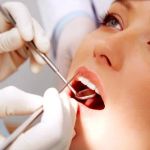Why You Should Avoid Sugary Foods for Healthy Teeth
- 1. The Impact of Sugar on Teeth Health
- 2. How Sugar Encourages Tooth Decays
- 3. The Effects of Sugar on Enamel
- 4. Long-Term Dental Issues From Excessive Sugar Consumption
- 5. Practical Tips for Maintaining Healthy Teeth
- 6. Conclusion and Healthy Alternatives to Sugar
When it comes to maintaining good dental health, many people focus on brushing, flossing, and regular dentist visits. However, one major factor that is often overlooked is diet—specifically, the consumption of sugary foods. Sugar plays a significant role in the development of cavities, tooth decay, and other dental issues. By understanding how sugar affects your teeth, you can make informed decisions about your diet and take the necessary steps to maintain a healthy smile.
Sugary foods and beverages provide the perfect environment for harmful bacteria in the mouth to thrive. These bacteria feed on sugar and, in turn, produce acids that erode tooth enamel. Over time, this erosion leads to cavities, gum disease, and even tooth loss. Therefore, avoiding sugary foods is an essential step toward protecting your teeth from these harmful effects.
One of the main reasons why sugary foods should be avoided for healthy teeth is the way sugar encourages tooth decay. When you consume sugary foods, the sugar interacts with bacteria in your mouth to form acids. These acids then attack the protective enamel layer of your teeth, weakening it and making it more susceptible to decay. The longer sugar remains in contact with your teeth, the more damage it causes, which is why frequent sugar consumption throughout the day can be particularly harmful.
Moreover, sticky and sugary foods, such as candies and sweetened snacks, tend to stick to your teeth, prolonging the exposure to harmful bacteria. This extended exposure increases the risk of developing cavities. By limiting sugary foods, you significantly reduce the amount of time your teeth are exposed to these harmful acids, protecting them from potential damage.
Enamel is the thin outer layer that protects your teeth from damage and decay. When sugar combines with bacteria in the mouth, it forms acids that gradually erode enamel. This erosion process weakens your teeth and increases the risk of cavities. The more frequently you consume sugary foods, the more opportunities you give these acids to break down the enamel.
Over time, enamel can wear away, and once enamel is gone, it doesn’t regenerate. This makes your teeth more vulnerable to further decay and sensitivity. To prevent enamel erosion, it’s essential to reduce your sugar intake and practice proper oral hygiene to neutralize acids and strengthen enamel.
The long-term effects of excessive sugar consumption on your dental health can be severe. Constant exposure to sugar can lead to chronic dental problems, such as:
- Cavities: Repeated sugar exposure leads to the formation of cavities, which are holes in the teeth caused by the weakening of enamel.
- Gum Disease: Sugar contributes to the growth of harmful bacteria in the mouth, which can lead to gingivitis and periodontal disease.
- Tooth Sensitivity: As enamel wears away due to sugar, teeth become more sensitive to hot, cold, and sweet foods and drinks.
- Tooth Loss: In the worst cases, untreated cavities and gum disease can lead to tooth loss, requiring costly dental treatments such as implants or dentures.
By reducing sugar in your diet, you can avoid these long-term dental issues and maintain healthy teeth for years to come.
Maintaining healthy teeth goes beyond just avoiding sugary foods. Here are a few practical tips to help protect your smile:
- Brush and Floss Regularly: Brush your teeth at least twice a day and floss daily to remove food particles and plaque that can lead to tooth decay.
- Drink Water: Water helps rinse away food particles and neutralizes acids in the mouth, promoting healthy teeth and gums.
- Limit Sugary Snacks: If you must consume sugary foods, try to do so with meals instead of snacking throughout the day. This reduces the amount of time sugar is in contact with your teeth.
- Use Fluoride Toothpaste: Fluoride helps strengthen enamel and protects against decay. Using fluoride toothpaste is a simple yet effective way to improve your dental health.
In conclusion, avoiding sugary foods is one of the most effective ways to maintain healthy teeth. By understanding how sugar affects your teeth and taking steps to reduce its consumption, you can protect your enamel, prevent cavities, and avoid long-term dental issues. For those who have a sweet tooth, there are plenty of healthy alternatives to sugar, such as fruits, sugar-free gum, and natural sweeteners like stevia. These alternatives provide a healthier option for satisfying your cravings without harming your dental health.
For more tips on maintaining healthy teeth and preventing dental issues, visit Dentistry Toothtruth for professional advice and products that can help keep your smile bright and healthy.







 Loma Linda University Center for Dentistry and Orthodontics4.0 (24 review)
Loma Linda University Center for Dentistry and Orthodontics4.0 (24 review) Dover Dental Center4.0 (44 review)
Dover Dental Center4.0 (44 review) Smile Fixer RVA: Stacy Lukanuski DDS, D.B.A4.0 (249 review)
Smile Fixer RVA: Stacy Lukanuski DDS, D.B.A4.0 (249 review) Handpiece Solutions, Inc.3.0 (7 review)
Handpiece Solutions, Inc.3.0 (7 review) McDonough Endodontic Center4.0 (333 review)
McDonough Endodontic Center4.0 (333 review) Smile Academy Pediatric Dentistry4.0 (48 review)
Smile Academy Pediatric Dentistry4.0 (48 review) The Importance of Oral Health Education During Pregnancy for a Healthy Pregnancy
The Importance of Oral Health Education During Pregnancy for a Healthy Pregnancy Best Tips for Brushing Your Teeth Properly for Healthy Gums: Essential Techniques for Oral Health
Best Tips for Brushing Your Teeth Properly for Healthy Gums: Essential Techniques for Oral Health Why Skipping Dental Checkups Can Lead to Bigger Oral Health Problems
Why Skipping Dental Checkups Can Lead to Bigger Oral Health Problems Advantages of Porcelain Dental Restorations
Advantages of Porcelain Dental Restorations How Can Diabetes Cause Tooth and Gum Problems? Preventing and Managing Oral Health Issues
How Can Diabetes Cause Tooth and Gum Problems? Preventing and Managing Oral Health Issues Healthy Habits for Promoting Good Oral Health and Hygiene: Tips for a Healthy Smile
Healthy Habits for Promoting Good Oral Health and Hygiene: Tips for a Healthy Smile